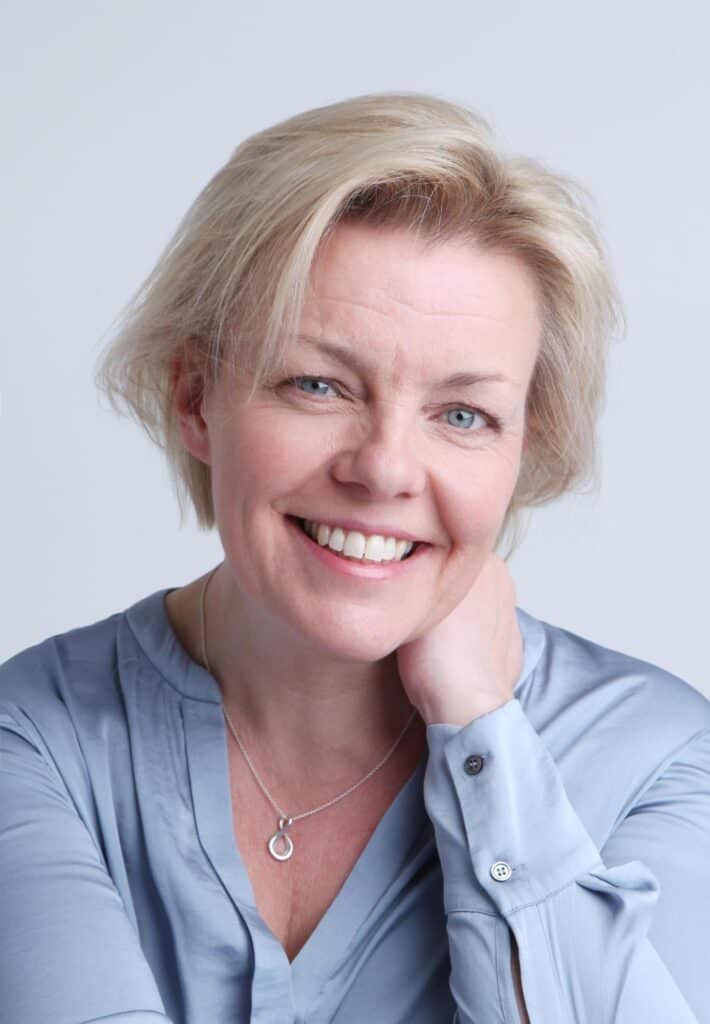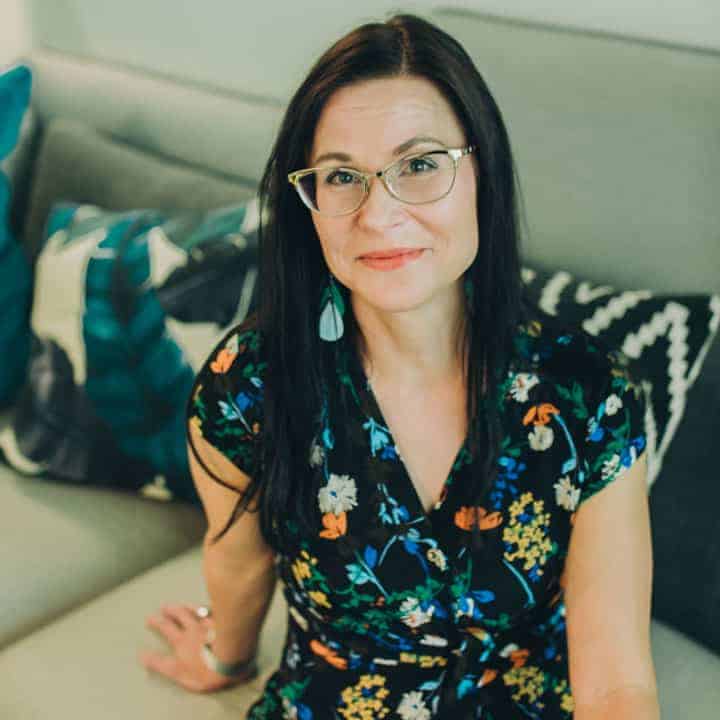
Embodied subjectivity
– working with animation to understand distress and promote change
Tule mukaan ainutlaatuiselle kurssille syventämään psykoterapiaosaamistasi kehollisuuden tutkimisessa huippukouluttajan johdolla!
Meillä kaikilla on tapamme kertoa tarinamme, joka on muotoutunut oman temperamenttimme ja elämämme kaikkien suhteiden ja kokemusten myötä. Kerromme tarinaamme sanoin ja tunnesävyin, mutta myös tietynlaisina kehollisina tapoina olla, reagoida ja liikehtiä. Psykoterapiatyössä tämä moninainen kehollisuus voi tulla tarkasteluun lisäämään ymmärrystä ja edistämään aktiivisesti muutosta.
Embodied subjectivity -koulutuksessa hyödynnetään Gestalt-terapian (kehityksellinen somaattinen psykoterapia) ja kognitiivis-analyyttisen psykoterapian (KAT) viitekehyksiä. Koulutus koostuu neljästä kahden päivän moduulista, joista jokaisessa käydään läpi teoriaa, kokemuksellisia harjoituksia, asiakastilanteiden tarkastelua ja taitoharjoittelua.
Kurssi toteutetaan englanniksi Iso-Britanniasta saapuvan kouluttajan Caroline Dowerin johdolla.
Koulutus syventää ymmärrystä ja lisää osaamista mm. seuraavista teemoista:
- kehollisen tietoisuuden kehittäminen, muuntaminen ymmärrykseksi ja hyödyntäminen psykoterapeuttisessa työssä
- kehollisten vihjeiden havainnointi ja hyödyntäminen terapian vuorovaikutustilanteissa, tässä-ja-nyt
- kokemuksellisuuden syventämisen ja relationaalisen ymmärryksen muodostamisen vuorottelu
- kuinka terapeuttinen oivallus johtaa kestävään muutokseen
Lue lisää alta, ja osta paikkasi Shortumin verkkokaupasta!
Koulutus-info
Kurssipäivät:
- 6. – 7.9.2024
- 8. – 9.11.2024
- 24. – 25.1.2025
- 14. – 15.3.2025
Koulutuspaikka: Espoo, Tapiola
Hinnat:
- Koulutuskokonaisuus: 1900 € + alv 24%
- Työnohjauspaketti: 750 € + alv 0% (valinnainen)
What is embodied subjectivity?

We all have styles of relating, formed by temperament and by all the relationships that have shaped our experience to date. In all psychotherapy models we have ways of identifying key patterns and how these are contributing to the client’s distress at this time.
In this course (4 x 2 course days) we will draw on models from Gestalt therapy (Developmental Somatic Psychotherapy) and from Cognitive Analytic Therapy (CAT) to bring a deeper quality of awareness of how animation – the quality of our movements and our attention – shapes our lived experience.
What does course prepare you for?
Our focus will be how the client and the therapist are moving and being moved within the clinical situation as a source of insight into distress and the routes towards acceptance and change. Enquiry and our own embodied awareness guide the therapeutic work and then CAT tools are used to clarify and simplify the insight, helping the client to make sense of their experience through this deeper quality of sensing their experience.
The approach will stand in contrast to models where the client is taught something about their body or typical trauma responses – which have their place – but here we will look at the unique embodied subjectivity of the client and draw on our own unique embodied subjectivity to enhance our clinical skills.
Central to this model is a deep respect for difference and a commitment to recognising and valuing our individual nature and the wider cultural and political forces that shape experience.
Who is the course for?
The course is open to psychotherapists, KAT short-term therapists and psychologists who have completed The Basic Skills in Short-Therapeutic Work (Lyhytterapeuttisen työotteen perustaidot 10 op).
As the course will be largely experiential in nature it is advisable that the participants have previous experience of engaging in their own counselling, psychotherapy or reflective practice groups. If you have any questions about the relevance of your background and training please do get in touch.
Embodied subjectivity course consists of four modules
The course is delivered through in four two-day modules. Each module will combine elements of theoretical understanding, the development of a new language for describing embodied experience, experiential exercises, case discussions and skill building. We will look at video footage of actual client sessions and use demonstrations of clinical work to illustrate how the model works in practice.
Module I
6. – 7.9.2024
Introducing a frame for embodied experience: Securing the familiar
We all notice and respond to non-verbal cues. In this module we will develop a language for movement that will support us to notice more, in ourselves and in our clients. We will use these concepts then to explore how we all embody the core relational themes of our lives. We ‘secure the familiar’ by moving and relating to people in certain ways. For our clients something may have become too narrow, restricted, or stuck, but us too – we find some relational styles easier and more comfortable, and some more testing or difficult, and we need to find ways to expand our own repertoire of relating.
Module 2
8. – 9.11.2024
Clarifying embodied experience
Building on the concepts and the ‘noticing’ of the first module, we will explore the methods to deepen awareness, helping ourselves and our clients to investigate how we organise our experience of the world and how this shapes the next moment. We begin to explore the consequences of organising ourselves and the world in this way. We will develop skills for the clinical encounter and for our own self-reflection and supervision – staying with the here-and-now rather than hearing the stories from history or present life.
Module 3
24. – 25.1.2025
Translating embodied experience
Many psychotherapy models have good techniques for developing awareness. CAT has a particular strength in translating awareness into an understanding that supports change. In this module we will explore the skills of moving between ‘deep sensing’ and the more cognitive aspects of ‘making sense’ of experience – and drawing threads between early experience, recent trauma and here-and-now relational difficulties. We progressing from deeper sensing towards sense-making so that they are not ‘telling’ their story but rather feeling it and appreciating it at a deeper level.
Module 4
14. – 15.3.2025
Moving on or staying stuck
How does insight lead to change? In this module we will explore how deeper embodied awareness supports therapeutic change. We will also look at how, if embodied experience is not attended to, change is resisted or short-lived. What elements of a psychotherapy ensure that change is sustained? As therapists, how can we ensure that our practice is sustainable too? What tools and supports do we need for our ongoing professional immersion in clients’ distress?
The modules will be spaced two months apart to enable time to deepen the understanding and to see the learning in action in your client sessions, as well as time for more reflections and questions to arise. We will take time in each module to consider actual clients. There is the opportunity to book supervision (individually or in groups, online) to enhance your understanding if you want ongoing input into particular client cases.
Theory papers will be sent out in advance of each module, but the papers are not compulsory. They will be for supplementary understanding and interest – the core course content will be in the modules.

PSYCHOTHERAPY TRAINER
Caroline Dower
Caroline Dower is a UK-based Integrative Psychotherapist with training backgrounds in Cognitive Analytic Therapy, Integrative Psychotherapy and Developmental Somatic Psychotherapy. Caroline is a former Consultant Psychotherapist in the NHS and the former Head of Counselling and Mental Health Services at Durham University.
She is conducting academic research on the embodied relational experience of anxiety in young adults, based at Durham University. Caroline has a private practice for therapy, supervision and training. She has offered workshops on embodied approaches in the UK, Finland, the Netherlands and Australia, and is a Teaching Assistant on the Developmental Somatic Psychotherapy course based in New York.
Embodied subjectivity -työnohjauspaketti
Kouluttaja Caroline Dower tarjoaa mahdollisuuden työnohjaukseen koulutusprosessin ajaksi. Työnohjaus toteutuu etäyhteydellä koulutusmoduulien välissä. Se tarjoaa mahdollisuuden syventää koulutuksessa opittua ja viedä sitä psykoterapiatyön käytäntöön.
Työnohjauspaketti sisältää viisi 90 min etätyönohjausta kolmen hengen ryhmässä. Jokaisella työnohjattavalla on käytössään 30 min työnohjausaika. Työnohjausajat sovitaan kouluttajan kanssa erikseen.
Buy your spot to the course from Shortum’s online store

Lisätietoja Shortumin koulutuksista
Heräsikö sinulle kysymyksiä tai haluatko tehdä tehdä ryhmävarauksen koulutuksiin?
Lisätietoja Shortumin koulutuksista saat suoraan Leenalta.
LeenA Särkelä
Koulutustalon johtaja
leena.sarkela@shortum.fi
+358 41 517 8088

Haluaisitko kuulla tulevista koulutuksista ensimmäisten joukossa?